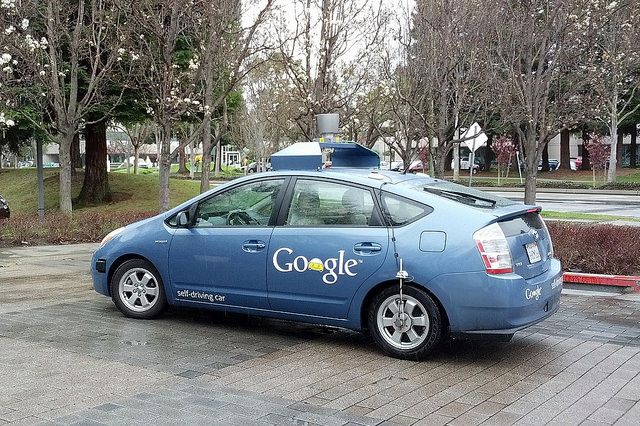A few lines in a seemingly routine RAND Corp. report on the future of technology and law enforcement last week raised a provocative question: Should police have the power to take control of a self-driving car?
Human drivers are required to pull over when a police officer gestures for them to do so. It’s reasonable to expect that self-driving cars would do the same. To look at it another way: Self-driving cars are programmed to stop at red lights and stop signs. Surely they should also be programmed to stop when a police officer flags them down. It is, after all, the law.
It’s clear, then, that police officers should have some power over the movements of self-driving cars. What’s less clear is where to draw the line. If a police officer can command a self-driving car to pull over for his own safety and that of others on the road, can he do the same if he suspects the passenger of a crime? And what if the passenger doesn’t want the car to stop—can she override the command, or does the police officer have ultimate control? – Slate, Aug. 24, 2015
Our view of civil rights has to evolve as technology changes our lives. More often than not, the changes are for the worse. Fifty years ago, could the police enter your home without a warrant and review your family photos for criminal evidence? No, and they still can’t today – though, of course, we know they do. However, they can order Facebook to give them access to photos you shared only with your selected friends.









Comments are closed.